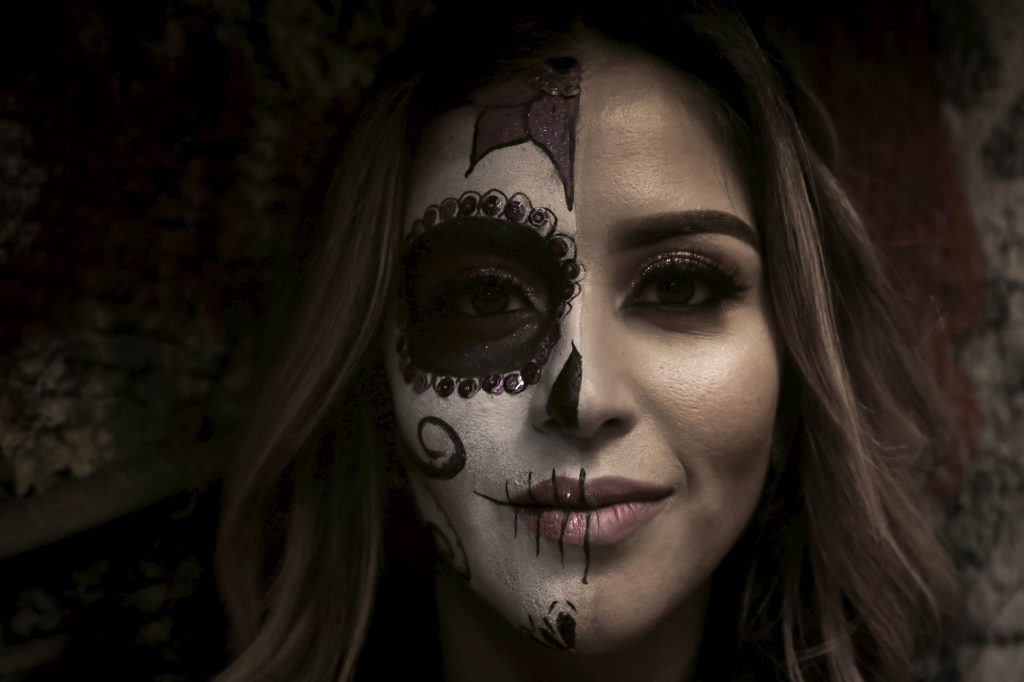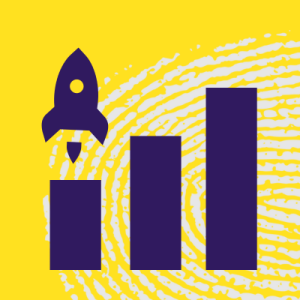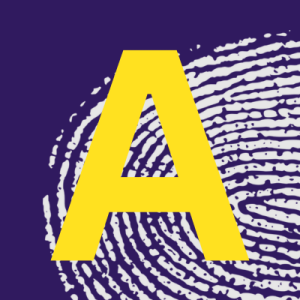This is the first part of a 6-part series on Inclusive Leadership by Marissa Ellis, Founder and CEO of Diversily. You can find out about the other articles here and how Diversily can help with Inclusive Leadership development here.
Please share so that together we can create a better, more inclusive future for everyone.
With the outbreak of COVID-19 many of us will have had time to think. Self-isolation is an opportunity for self-improvement. We have had time to reflect on who we are, how we lead and who we want to become. The uncertainly of the global pandemic has made many of us think deeply about where our priorities lie, what our purpose is and what impact we want to have on the world.
“Your job is not to live forever, but to create an impact that will.”
Marissa Ellis, Founder & CEO, Diversily

Leadership is a skill. It’s a muscle that needs to be worked and trained. The command and control style of leadership is no longer effective in today’s increasingly diverse and complex world. Leaders need to build authentic connections. As a leader this requires exposing a little more of who you are. You’ll need to inspire and assemble diverse teams, as your success is not about having all of the answers yourself but in creating synergies in others. When people are treated as people, and not simply resources to get the job done, productivity soars.
My mantra for inclusive leadership is ‘Become myself. Lead everyone’. In this series on Inclusive Leadership we’ll explore what this means. In Part 1 we’ll focus on the first part of this mantra, ‘Become myself.’
You may be thinking, ‘just tell me what I can do to build diverse teams and lead inclusively’. In this series of articles we’ll definitely get to that. I’ll share lots of actionable insights and practical tips. However, for true success you have to start with yourself, and that is what, this article, Part 1 of this series is all about. Behaviours that have brought you success in the past may no longer bring you success in the future. Unlearning is a lot harder than learning.
Your first step is making a commitment to change.
A commitment to be honest with yourself.
A commitment to challenge yourself and be open minded about what you might discover in the process.
Becoming yourself is a lifelong mission. Becoming your best future self requires you to do the work to understand who you are, what your greater purpose is and what is holding you back. In Maslow’s famous hierarchy of needs, right at the top of the pyramid is self-actualisation. Many rich and famous people suffer from depression, unhappiness or anxiety. They may have found riches, but they haven’t found themselves. Their lives are still lacking meaning and purpose.

“Today, too many leaders use their leadership roles not to lead but rather to strip others of their identity. They think it makes them look strong. But true strength in today’s business environment demands authenticity, inclusion, and vulnerability.”
Glenn Llopis, Author, Speaker, Business Consultant and former C-suite corporate executive.
Leaders who are able to be their authentic selves, doing work that they believe is their greater calling and making a difference, are more fulfilled. Relatable, authentic leaders build trust and empower others to also show up as their true and authentic selves. It is infectious. If we all try to become our best selves, rather than mould ourselves into a single definition of what success looks like, we create more opportunities for everyone. Over time, our current limited image of success will morph into a diverse range of different possibilities. We will inspire a greater range of different people, and together we create an inclusive environment where people who are different from each other can thrive together. Diversity in visible role models is needed to inspire diverse future leaders to believe in themselves.
Taking an inclusive approach to the way you lead, is how to get results. Leaders need to have understanding, compassion & kindness. We don’t all need to agree. In fact, we’ll probably have greater collective success, if we don’t always agree. We need to be able to listen, to understand and to accept our differences. Inclusive leaders use a combination of deep self-awareness and empathy to drive team performance and group success.
By becoming a more inclusive leader you can also make a positive difference in the world.
Before we go deeper, let me share a little about myself. I want you to feel a connection to the real person behind these words. I want to role model authenticity, and not just talk about it. You can look on LinkedIn to find out what I do — I am Marissa Ellis, the founder of Diversily and a strategy and change consultant. However what people do, just touches the surface. What is really important is who we are, and why we do what we do. I believe that if you understand who I am, and why I do what I do, these words will have more meaning. Exposing the ‘why’, sharing your personal motivations is something that inclusive leaders do to build stronger relationships and more authentic connections.
I have always been deeply aware of social injustice. Postcode influences life expectancy.
As a white, female mother I see both sides of the ‘privilege coin’. People who have never met me, make sweeping assumptions about me. Like, she probably won’t understand the technical detail, or she won’t be able to do that if she has children.
People face discrimination due to race, religion, sexual orientation and other factors often outside of their control. From the moment you are born so much is already defined about who you are, that will influence your life path before you have taken your first breath.

I hadn’t really deeply connected this societal injustice to my professional world until I was made redundant when I was pregnant with my first child. I became acutely aware that we do not live in a meritocracy and that the lack of diversity in the tech sector (my industry), and beyond is a huge issue. I had found my calling and the inspiration to create Diversily. You can read more about inspiration to start Diversily in this blog.
My mission is to challenge normality. I believe we can all aim higher, achieve more together and drive continuous positive change by changing mindsets. Inclusive thinking is a critical skill that is simply not being taught or developed in people. It was certainly a critical missing chapter in my professional upbringing. My deep ambition is to get more people thinking and acting inclusively.
This is why I started Diversily and have built various tools and workshops, such as The Diversily Inclusive Leadership Workshop, The Change Canvas and The Inclusive Experience Design Process.
They all help build in diversity by design and create intentional inclusion.
The common thread and what truly motivates me, is inspiring people to take positive action. Not accepting the status quo but reflecting deeply on how things can be better, setting ambitious goals and ultimately making it happen, celebrating results along the way.
As an introvert talking about myself is not high on my list of things I enjoy. So, I don’t do this for personal satisfaction. I do it because inclusive leaders share a little of who they are. They form authentic connections and they share their own vulnerabilities for the benefit of others, to inspire greater success. Brene Brown talks about the ‘vulnerability hangover’. The feeling, afterwards, that you shared too much. As a leader it is important to know where your line is, to find the balance that is right for you.
You may think you are self-aware. You may think you understand others. However, no matter where you are you can always go deeper, you can always understand more. You need to be brave, as challenging your own preconceptions can be hard. However, if you are open minded enough, you will discover things about yourself and others that will benefit you tremendously in the future.

The act of ‘becoming yourself’ can be hugely liberating as it frees you from the separate compartments of your life, each of them placing different expectations on you, and restricting your ability to simply be you. For example, as an executive you may feel expectations around professional conduct mean that your love of music is simply not relevant in the office. However, it is the nuance and richness that comes from all aspects of your life that together make you the person that you. Inclusive leaders, like Lana Tahirly Abdullayeva, don’t just know this, they embrace it.
“In 2019 at one of the conferences, I was asked how it’s possible that I seems to embrace this big data and Open Finance revolution so naturally and organically. I think it’s all thanks to the Azerbaijani jazz, food from different cultures and music in general, that I grew up with. It taught me how to embrace diverse flavours and made me so forward looking.
I proactively look to build diversity of thoughts, expertise and characters in my team, establishing common goals and values to drive forward together. Team success always makes me feel proud and it’s the best reward.”
Lana Tahirly Abdullayeva — Strategic Advisor, Digital
Thinking inclusively is a fundamental building block of leadership. Inclusive intelligence is an underused superpower. If you are not thinking about the full range of needs and considering all perspectives, your actions will be likely to exclude people, limit your potential results or have negative consequences.
Have you thought about the people that you may be excluding by only having team socials as after work drinks?
Have you thought about who isn’t applying to work in your company because everyone on your website is white, male and between 25 and 45?
Once you start thinking inclusively it is impossible to stop.
Inclusive Leadership is not a new strand of leadership, it is about building inclusion into everything you do.
The systems are broken, and they need fixing. The best way to fix the systems is to inspire more leaders to think inclusively. This means joining the collaborative movement for change by stepping up, making a difference and following my mantra, “Become myself. Lead everyone.”
There are so many P’s in business. Profit. Promotion. Pricing. Product. Process. Practice. Policy. But the most important one is people.
Success is all about people, people and people.
This means looking beyond the role and the job at hand to the individuals. People have their own agency. Successful leaders are those that inspire others to support their mission — they don’t just tell them what to do. As an inclusive leader this means exposing a little of who you are and why you do what you do. Exposing some vulnerability and showing we are all fallible, can demonstrate great strength and courage. It can help you show your team that they are allowed to be human and you will support them. Exploring your own ‘why’ can also help you find greater purpose and lead you to take a path that leads to greater fulfilment.
The first step to becoming an inclusive leader is to know yourself. By knowing yourself you can give yourself permission to be yourself.
Being an inclusive leader isn’t just about taking inclusive action. There is an element of self-discovery that is needed to become the best version of yourself, to help others to thrive and to drive team success.
An inclusive culture is one where people can show up as themselves, feel like they belong and thrive together. To create an authentic inclusive culture, you have to know who your authentic self is.
The person that you will show up as.
The person that you will share.
The person that will inspire your team.
The person that will excel and feel fulfilled.
I was told a story recently of a senior executive who came out to thousands of people in a company meeting. With a tear in his eye, he told the attentive listeners that he was gay, a fact that he had been hiding for 40 years. He shared the liberation he felt for being able to speak his truth, and he went on to talk about the culture of belonging he wanted to create in the organisation. By sharing his vulnerability, he built trust and the audience felt instantly connected to his vision for the company.
As a leader you can’t expect others to be their authentic self if you are masking who you really are.

I work with leaders to help them map out their own personal inclusive leadership development journey. We use The Change Canvas to do this. By navigating through the boards of The Change Canvas we answer three key questions:
- Reflection — Who you are?
- Vision — What do you want to achieve?
- Progress — How you are going to get there?
Often there is a pull to focus on immediate operational matters but taking the time for personal reflection will pay dividends in the end. Leaders that work on their own personal Change Canvas go on to drive inclusive action. I have noticed the following trends with the leaders I have worked with:
- As they learn more about themselves and connect to a deeper purpose, they feel more confident to create change.
- They realise the importance of belonging and catering for difference, prompting them to raise the topic and drive for more action.
- By building a deeper awareness of their own privileges and lack thereof, they develop a deeper understanding of how privilege affects opportunity, the systemic bias in so many ‘systems’ and their responsibility to create equity.
- They connect diversity and inclusion to business strategy. They no longer think of it as a side-line or one-off activity and realise the need for ongoing, relentless inclusive action.
Now, let’s turn our attention to you.
A deep and honest understanding of your own identity, strengths limiting beliefs and privileges and how these have influenced your own experiences will enable you to better serve and support others.
First you have to give yourself permission to be you. To accept who you are, and who you are not. Then you can start your journey to become the best version of yourself, and a leader who serves everyone, and not just people like you.
Imagine yourself climbing the metaphorical ladder of success. Instead of blindly climbing to the top, chasing more money, that next promotion, more responsibility, I want you to pause and consider two things.
- Where is the ladder heading? The top of the ladder is the definition of ultimate success. But what is success for you? What is your true calling? What legacy will you leave in terms of the difference you made? True success is about finding your perfect balance of power, purpose and passion. Often, we climb the ladder blindly rather than moving it to a new place that will serve us better.
- What is stopping you from climbing the ladder? Self-reflection is needed to see the invisible glass ceilings that prevent us from progressing. What are your self-imposed limiting beliefs that are holding you back? What are more general societal blockers that you face? What false assumptions do people make about you? Often, we feel stuck and we don’t know how to progress. Understanding why can help you smash through those glass ceilings and create opportunities, not just for yourself but for others too.
Knowing yourself is the first step to becoming a more inclusive leader. Take some time to reflect on your identity, and what has shaped the person you are today. The Inclusive Leadership Change Canvas is filled with questions to help you do exactly this. It can be downloaded for free here.
Use this deeper self-awareness to define the leader you want to become, build empathy for others who are different to you and step up as an advocate for diversity and inclusion. You can choose to do nothing, or you can choose to use your power and influence to give unheard voices a seat at the table and drive systemic inclusive change.

“Become myself. Lead everyone. Becoming an inclusive leader is precisely this simple and also this difficult.”
Marissa Ellis, Founder & CEO, Diversily
In this first article in the Inclusive Leadership series we have explored, the first part of my mantra “Become myself. Lead everyone” and why knowing yourself is the first step to becoming a more inclusive leader.
In the upcoming parts of this leadership series we’ll continue to explore inclusive leadership in more detail. I’ll share insights, actionable advice and practical tips to help you become a more inclusive and successful leader. Stay tuned for Part 2 where where look at why now is the time for change.
Please share so that together we can create a better, more inclusive future for everyone.
You can find out more about Diversily Inclusive Leadership development here. You’ll also be able to download the free Inclusive Leadership Change Canvas, which is an excellent discovery tool for self-reflection. Join our growing community of leaders by using The Change Canvas to build high performing inclusive teams and release potential.





